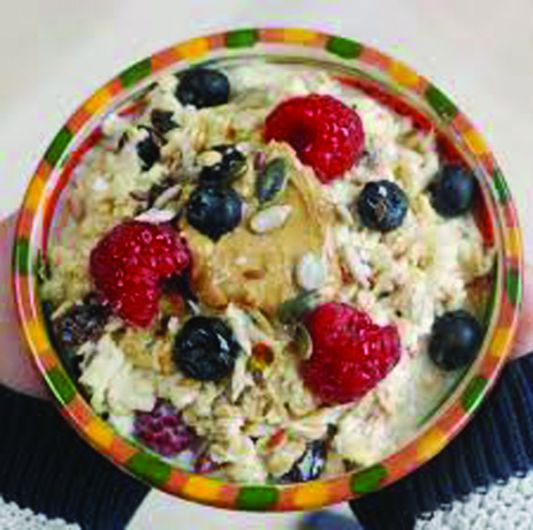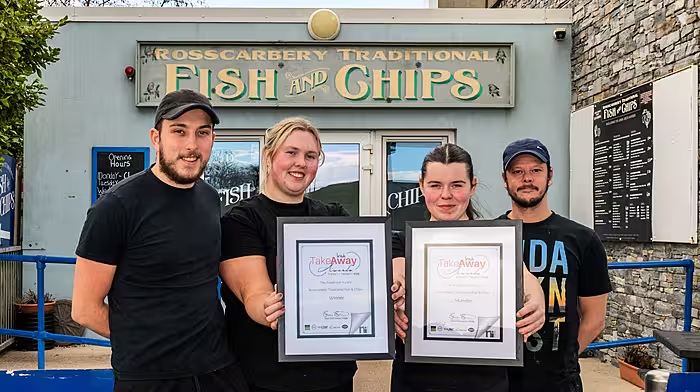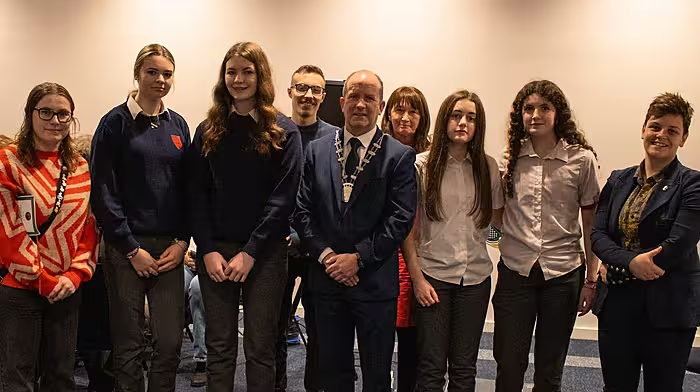The latest Childhood Obesity Surveillance Initiative looking at over 4,900 primary school children across the country found that unless we take immediate action, we will become the most obese nation in Europe.
Health & Nutrition with Rosie Shelley, BA, SAC.Dip, ITEC.Dip
The unfortunate truth is that we are on course to become the most obese nation in Europe unless we take action now. – Minister for Health Promotion Marcella Corcoran-Kennedy
THE latest Childhood Obesity Surveillance Initiative looking at over 4,900 primary school children across the country found that unless we take immediate action, we will become the most obese nation in Europe. The UCD/HSE reported that at least one in five children are overweight or obese, and that girls are significantly more likely to be affected than boys.
Last year saw the government launch its Healthy Weight for Ireland Policy - a 10 step programme of recommendations including increasing access to free drinking water in schools, putting pressure on manufacturers to reduce sugar, fat and salt content, and the tax on sugary drinks which is due to be introduced next year. Inexcusably, in my view, the revenue raised from this tax is not going to be used for health initiatives, as it will be for example in the UK.
And, again in my view, the contribution to the health of our children will be negligible given that the sugars will likely just be replaced with artificial sweeteners, which have now been proven to play at least as central a role in the obesity/diabetes epidemic as table sugar.
The HSE has responded to the report with some key steps to achieving or maintaining a healthy weight in children: reduce portion sizes, don’t allow treats every day, make being active fun and regular, encourage more sleep, and develop strategies that appeal to girls in particular.
Getting enough good quality sleep is indeed increasingly being recognised as an important part of the puzzle—it’s when we’re sleeping that human growth hormone is produced as well as the hormones that tell us when we’ve eaten enough. Research shows that children who have less than 11 hours are 58% more likely to be overweight or obese, and another study has just suggested that a regular sleeping routine for kids helps prevent obesity and also promotes emotional balance.
Emotions can play a part in overeating, so it would be important to make mealtimes happy, relaxed affairs and to eat together. One survey found that one in 10 teenage girls never sit down to eat with the family, while 51% of them had treats once or more every day.
The problems with processed foods are not limited to an obesity/diabetes inducing high sugar content.
Many of them still contain trans fats, which have been conclusively linked with heart disease, Alzheimer’s and some cancers in later life and also contribute to weight gain, diabetes and much more due to their harmful effects on gut bacteria.
Then there are the processed meats like sausages, hot dogs and rashers, which even in quite small quantities exponentially raise the risk of childhood leukaemia and brain tumours (as well as bowel cancer in later life). Three quarters of our children are eating unsafe levels of salt, mainly from processed foods, and new research shows that fast food wrappers contain chemicals that have been associated with immune suppression, thyroid disease, infertility and cancer.
Australian scientists reported last month that children who regularly consume soft drinks performed more badly at school, but that those eating vegetables with their evening meal, every day, had ‘significantly better scores in writing and spelling’.
Eating vegetables really doesn’t have to be a chore if you use a bit of imagination—anything tastes good with the addition of a French dressing, or a tasty sauce.
Kids are surprisingly open to spicy dishes like chilli con carne, curries or Mexican favourites made with lots of chopped veg, and maybe some beans or lentils as well as meat.
Offer an egg or oat based breakfast, a soup and salad for lunch, and you have your bases covered.
And there are endless healthy options for snacking/dessert, such as hummus/guacamole/salsa with vegetable sticks, homemade popcorn, Greek yoghurt with cocoa, fruit and nuts, or (for a treat) muffins made with ground almonds, eggs, banana, blueberries, dark chocolate chips and nuts.
Oliver McCabe is a chef, nutritionist and author who has been bringing his ‘cooking as a life skill’ classes into primary schools for the past year.
These two recipes for muesli and hummous are adapted from his highly nutritious suggestions for getting the kids involved in preparing their meals.
Bircher Muesli (serves 5)
The night before you want it, mix together 500g oats, 400ml pure apple juice, 2tsp cinnamon, 150g each of grated pear and apple, 260g natural yoghurt (live or bio if poss), a few handful of chopped nuts and the juice of a lemon. You can add some raisins if you need it to be sweeter. In the morning, top with berries and seeds/ ground flaxseed. It will keep for three days in the fridge in an airtight container.
Beetroot Hummus
In a food processor, combine a 400g tin of drained and rinsed chickpeas, a clove of garlic, a vacuum pack of beetroot (chopped a little), 100ml of extra virgin olive oil (you can replace some of this with water if you wish), the juice and zest of an unwaxed lemon, 2 Tbsp tahini, and 3 tsp of sweet or smoked paprika. I like to add sundried tomatoes from a jar, or some peeled roasted red peppers. Blend until smooth, adding water if necessary. Will keep, covered in the fridge, for days.








